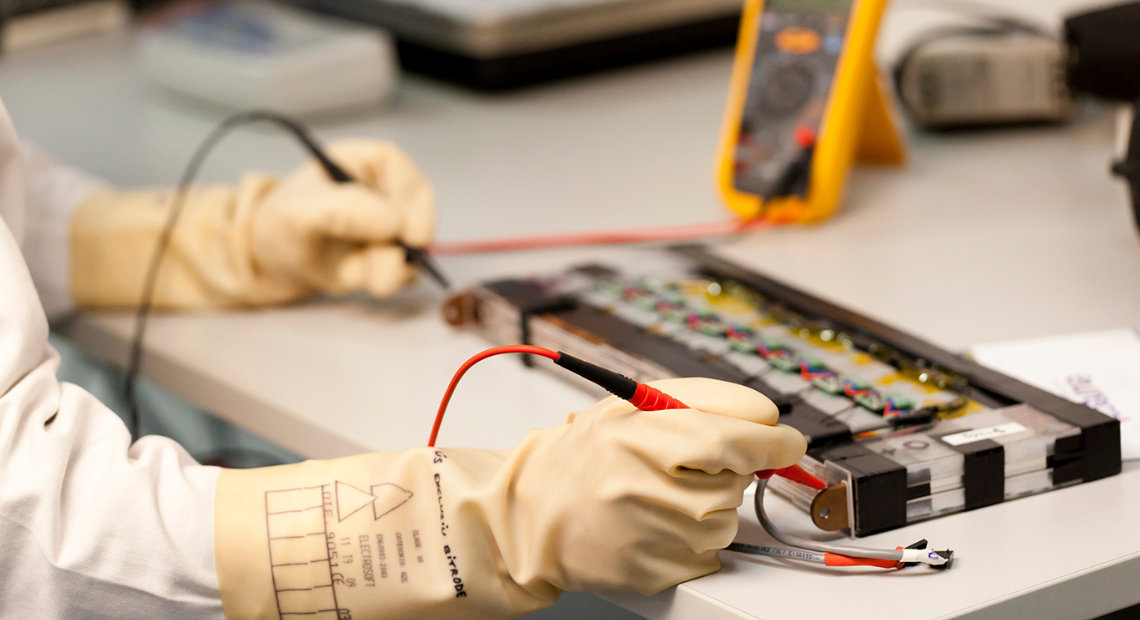The reference R&D center for batteries in southern Europe, BATTECH, is participating this week in the Battery Show Europe fair, held in Stuttgart, where the latest innovations in the field of electric mobility are shown, with projects aimed at developing batteries for electric vehicles that are lighter, more sustainable and free of critical materials such as cobalt.
Promoted and established by IREC and by Eurecat technology center, BATTECH provides research, development, testing and specialized innovation in the field of batteries with the aim of improving the transfer of knowledge to industry in this area, from a perspective focused on the circular economy and sustainability to cover the entire value chain of batteries as a reference center for R&D&i.
The technological promoter of BATTECH, Alberto Gómez, highlights that this joint research unit “completely covers everything from the development of the materials that make up the cells, as fundamental parts of the batteries, to the integration of large batteries in energy systems and sustainable mobility, as well as the second life of batteries and the recycling”.
Along these lines, the European project MARBEL, coordinated by Eurecat, develops a new lighter and more sustainable battery concept, with greater energy density and shorter recharging times with the aim of accelerating the mass market adoption of electric vehicles.
The COBRA project, led by IREC, develops a new and unique cobalt-free battery system that combines various characteristics, such as higher energy density, low cost, increased cycles and the reduction of critical materials , with the aim of responding to the deficiencies currently presented by electric vehicle batteries.
Jordi Jacas, the coordinator of COBRA at IREC, stresses that “cobalt is a scarce and polluting material and we are very close to replacing this critical element without decreasing the battery performance”. In addition, “we invest a lot of effort in improving the environmental sustainability of the global system to reduce its carbon footprint,” he adds.
For Jordi Jacas, the innovation promoted within the framework of the project “presents an easy adaptation to production lines and greater adoption in the market, while helping to strengthen Europe’s position in this field”.
Find the press release today in Catalan (CAT) and Spanish (ES):



